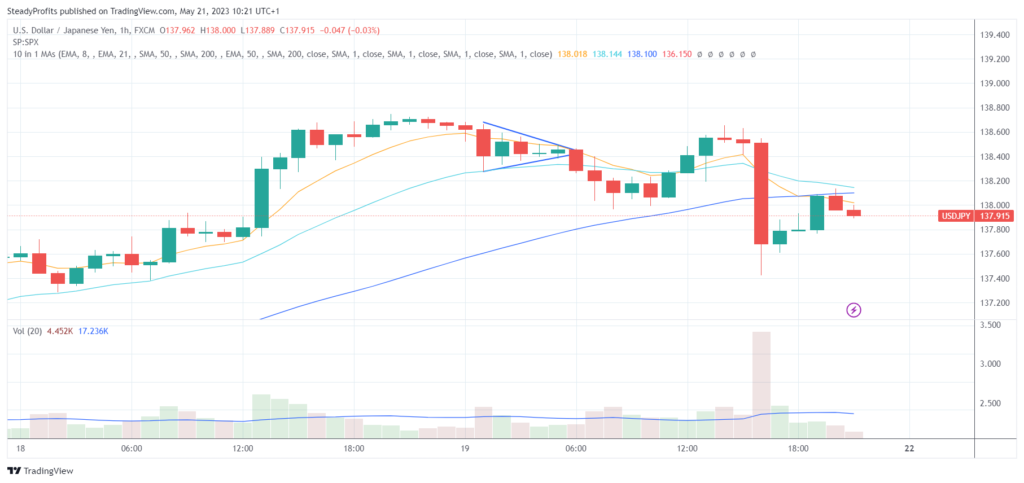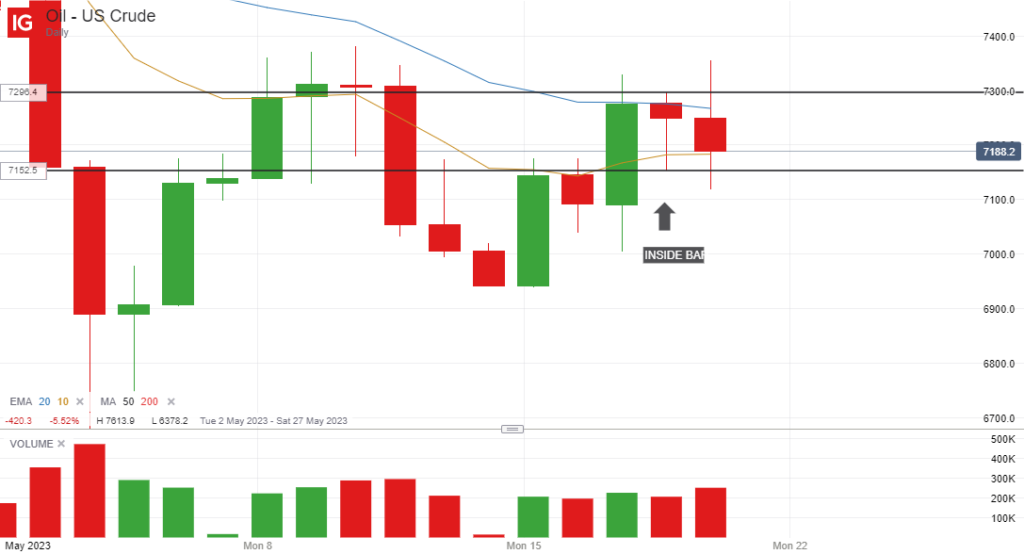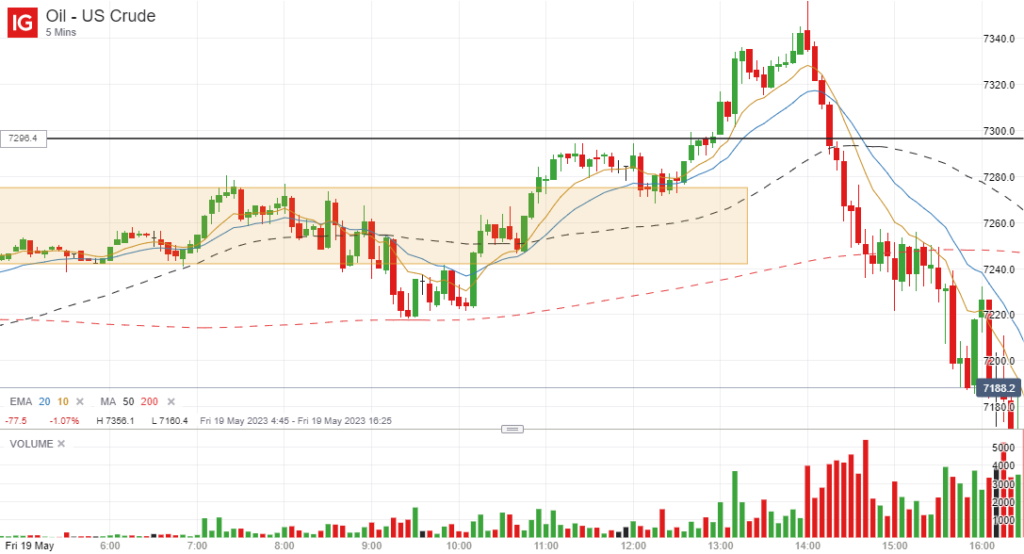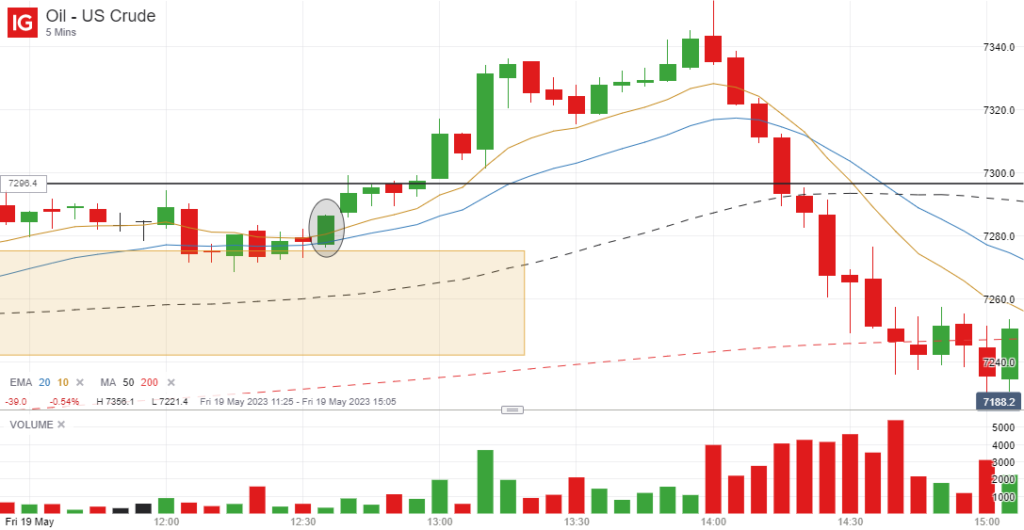Introduction
As a day trader, you always want to see strong trends upwards or downwards with plenty of volatility because this will enable you to either ride these trends upwards or downwards, or trade the reversals when these trends run out of momentum.
The one thing you don’t want to see is a very narrow trading range with little or no volatility because this can make it very difficult to find winning trades, and can actually destroy accounts.
However this is exactly what we saw in the first 3 hours of the trading session when the S&P500 market opened earlier today, as you can see below:
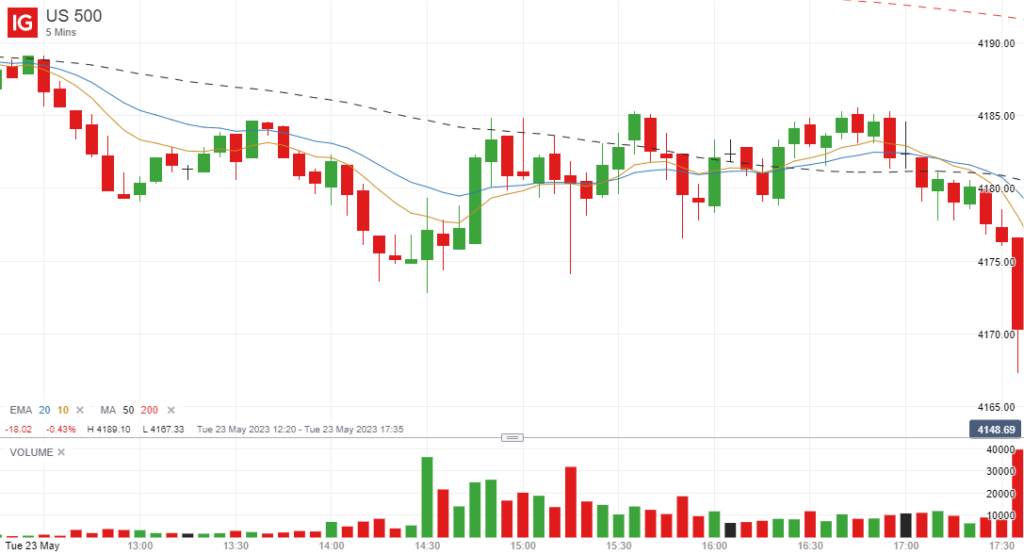
Trading Range
The price did fall later in the day, but during this opening 3-hour session, when most day traders like to trade, the price of the S&P500 was just drifting in a sideways trading range between about 4178 and 4185, which is just a 7 point range.
There were a few occasions when the price moved out of this range, but it quickly moved back to this trading range each time.
Why Narrow Ranges Are So Hard to Trade
There are some day traders who like to trade tight trading ranges like this, and will just continue to sell short at the top of the range and go long at the bottom of the range, capturing small profits each time, but the vast majority of day traders don’t trade like this.
Most day traders will tend to trade breakouts out of this range in the hope of capturing the start of a new trend, and when you get a sideways market like this, it can potentially destroy accounts as traders keep getting stopped out on every possible breakout.
The problem is that you don’t really know that the market is going to trade like this before the market opens. In fact the S&P500 (future) actually moved more than this when the US market was closed, trading as high as 4210 in the overnight Asian session.
So you would think that having fallen so much out of hours, the price would move a lot more when it actually happened, but this wasn’t the case today.
Closing Comments
The point I want to get across is that very tight trading ranges are generally very bad news for the vast majority of day traders because they can really chop you up and result in lots of small losses.
There is no way of knowing whether you are likely to experience a day like today ahead of time, although the market will sometimes give you clues.
For example, if you get two or three days where the trading range has been well above the ATR (average true range) on the daily time frame, then there is a higher chance that you will see a smaller consolidation day with a tight range at some point.
Similarly, if you have a large daily candle up and an equally large daily candle down with the price closing somewhere near the middle, you are quite likely to see an inside bar day in the third day.
Finally, if the price has been trading in a narrow range on the higher time frames, which the S&P has been doing, then this increases the chances of a tight range as well.
Therefore if you are struggling to make money from day trading the S&P right now, you certainly aren’t alone.
The S&P500 can be a great market to trade, but it might be a good idea to trade more volatile markets such as oil or the major forex pairs when this index continues to trade in a narrow range on the daily chart.
